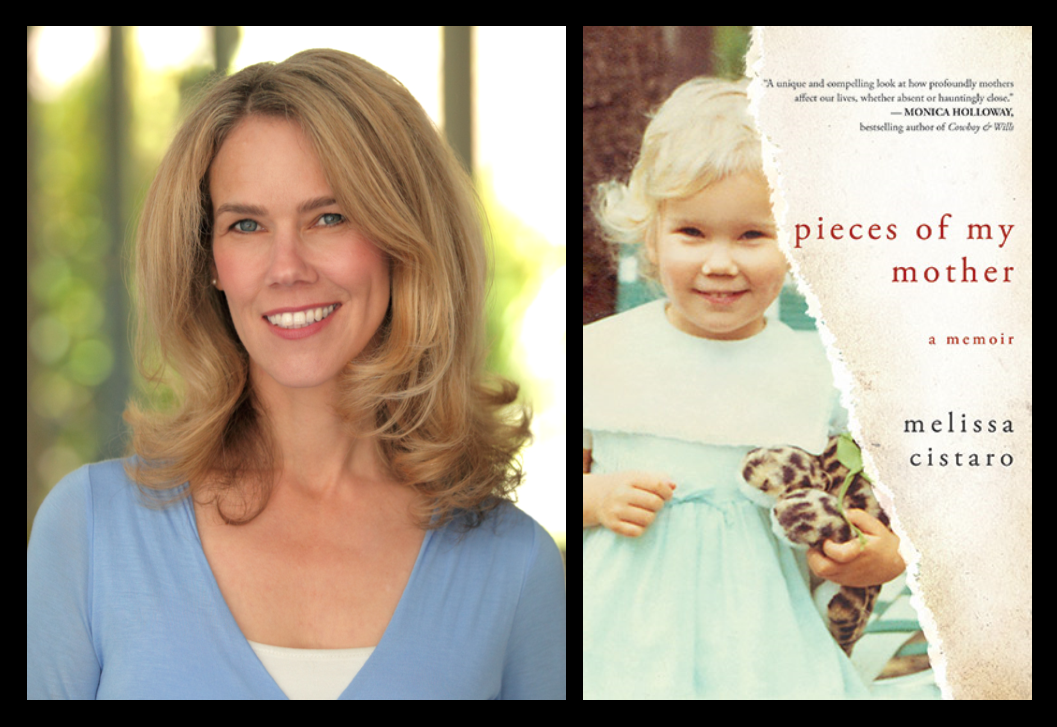 I discovered author Melissa Cistaro’s Pieces of Me through NetGalley late last year. Although I posted a review in January, the story remained for quite some time on my mind. I was struck by this story of a growth daughter dealing with the imminent passing of her mother, with whom she has had quite a tumultuous relationship. Having been blessed with a mother about whom I stopped complaining once maturity set in (because really, being lovingly disciplined is what a Mom is supposed to go, ten-year-old Sahar!), I found myself compelled by the love that bound these two women together despite their history. It was, in a way, an homage to the unique relationship between a mother and daughter.
I discovered author Melissa Cistaro’s Pieces of Me through NetGalley late last year. Although I posted a review in January, the story remained for quite some time on my mind. I was struck by this story of a growth daughter dealing with the imminent passing of her mother, with whom she has had quite a tumultuous relationship. Having been blessed with a mother about whom I stopped complaining once maturity set in (because really, being lovingly disciplined is what a Mom is supposed to go, ten-year-old Sahar!), I found myself compelled by the love that bound these two women together despite their history. It was, in a way, an homage to the unique relationship between a mother and daughter.
Melissa’s book was particularly noteworthy in how it did not deal with the relationship in the stereotypical angry-daughter-lashing-out-at-Mom way. Rather, she embraced an approach that balanced out her feelings of abandonment with a more rational thought process that sought to understand where her mother was coming from and why she did what she did.
I decided to approach Melissa and ask her thoughts on how she was able to steer away from the angry approach and remain in the more rational one. How can someone else whose mother left when they were really young, be encouraged to embark on a constructive path like she did? I understood from the book that some of it has to do with her personality; I also understood that she was further encouraged to pursue this path in light of her own experiences as a mother. What else helped Melissa stay on this path
On Finding Forgiveness through Writing, by Melissa Cistaro
When I set out to write a book, my intention was simple; to tell my story as best I could. I wanted to understand my mother before she died and what it was that made her capable of leaving her three children. In order to do this, I also had to understand myself and who I was as a mother and daughter. It was a very difficult and long process for me to complete this story (12 years).
I wrote in coffee shops when my children were in school. I wrote during times when I was struggling as a parent. I wrote while my mom was dying. I kept writing because I needed to understand all the complicated pieces of my family history – and I wanted to get the stories and the feelings right.
I think people are interested in this topic of how one writes about painful experiences and ultimately finds forgiveness in the process. I also think that there are people who are resistant (or afraid) to forgive. I have in-laws and close friends who have cut themselves off completely from family members. Daughters and sons who no longer speak to their parents. It’s painful to watch people make these choices. Granted, sometimes the reasons seem justified. But this is not in my nature. Families are flawed, broken and beautiful in their own unique ways.
The last thing I would ever want is to hurt anybody in my family. However, I would not feel right about publishing this book if my mom were still alive. The topic was simply too painful for her. I don’t believe that she was ever able to fully look at her choices and come to peace with them. She locked away her feelings – much in the way that I learned to hide my feelings growing up. It was important for me to break free of this family legacy and complete the book. After my mom died, I sat down with all the letters she had left behind and never sent. I read through my grandmother’s journals. I pulled out all the spiral notebooks of my own writing that I had stashed underneath my desk. I didn’t want to leave these feelings behind. I wanted to find the love, grief and compassion in all the pieces and make them whole. I felt compelled to shift one tiny part of the family history I had come from. I couldn’t change it – but I could write about it, claim it and find the lost beauty in it all. I wrote and rewrote until I was empty and then full – knowing that this was a story that needed to come from a place of compassion.
First published on Sahar’s Blog on 7 May 2015.

